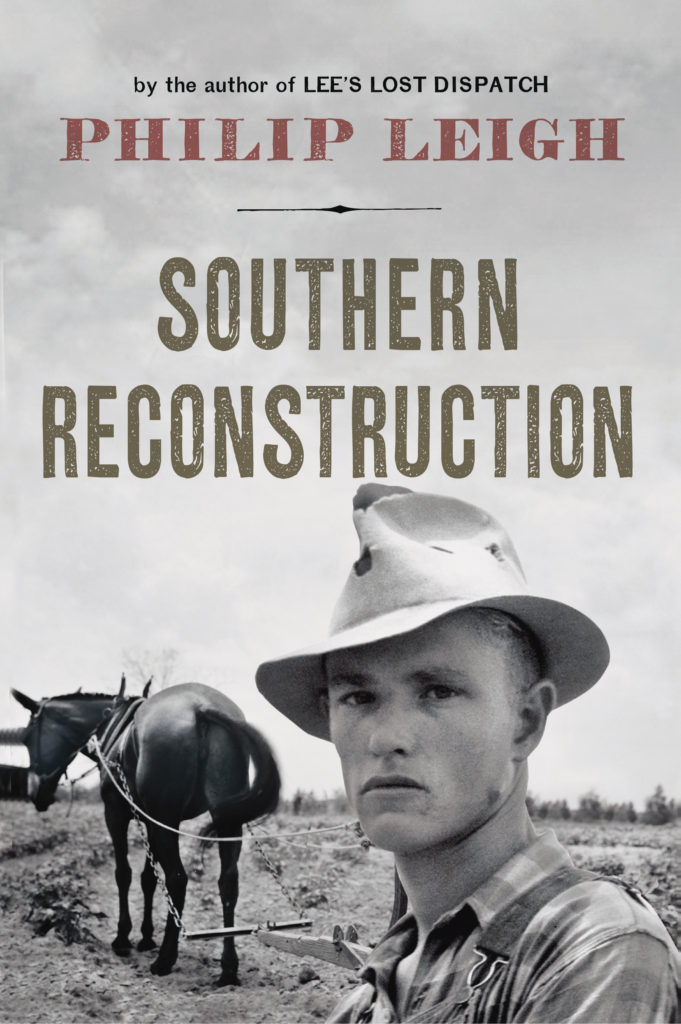

Southern Reconstruction
by Philip Leigh
Select Your Format:
Paperback$26.00eBook
$26.00 Add to Cart Save 25% on every book by joining our Book Club


by Philip Leigh
Select Your Format:
PaperbackWhile the Rest of the Country Enjoyed a Gilded Age, the Deep South Descended into Devastating Poverty
The Reconstruction Era—the years immediately following the Civil War when Congress directed the reintegration of the former Confederate states into the Union—remains, as historian Eric Foner suggests, “America’s unfinished revolution.” But Reconstruction is more than a story of great racial injustice; it has left a complex legacy involving both blacks and whites, Southerners and Northerners, that is reflected today by the fact that many of the states with the highest rates of poverty were part of the former Confederacy. In Southern Reconstruction, Philip Leigh examines Federal wartime legislation in order to broaden our understanding of Reconstruction, revealing how it led to African Americans being used as political pawns, first to ensure continued Republican rule, and finally to be blamed for the South’s hardships in order to draw poor whites away from Populism and back to the aristocratic white Democratic banner.
Civil War laws, such as the Confiscation Acts, Pacific Railroad Acts, Homestead Act, Legal Tender Act, National Banking Act, and Veterans Pensions Acts, transformed America’s banking system, built a railroad web, and launched the Gilded Age in the North and West, but it also created a dubious alliance between banks and government, sparked corruption, purposely depressed Southern industry, trapped Southern farmers—both black and white—in endless annual peonage cycles, and failed to provide lands for freedmen. While Reconstruction was intended to return the South to the Union, it could not be effective with laws that abetted Southern poverty, disfranchised many whites, fostered racial animosity to a point where lynchings and Jim Crow laws erupted, and lined the pockets of wealthy or politically well-connected business leaders outside of the region.

Philip Leigh is the author of a number of books, including Lee’s Lost Dispatch and Other Civil War Controversies and Trading with the Enemy: The Covert Economy During the American Civil War. From 2012 to 2015 he was a regular contributor to the New York Times Disunion Series, which commemorated the Sesquicentennial of the Civil War. He has an engineering degree from the Florida Institute of Technology and an MBA from the Kellogg School of Management at Northwestern University.
“Leigh expands our understanding of this crucial period by showing how its focus extended far beyond the issue of race that some interpretations stress. . . . Highly recommended.”—Choice
“Leigh’s thoughtful examination of the Reconstruction era delves into the very real costs . . . shedding light on why generations of Southerners continue to spiritually fight the war.”—Publishers Weekly
“An admirable work that is both balanced and comprehensive. Mr. Leigh has given us a refreshing corrective in the history of the Cultural Revolution that swept the United States and the South in the latter half of the nineteenth century.”—H. V. Traywick, Jr., author of Empire of the Owls
“Philip Leigh’s Southern Reconstruction cuts against the grain of mainstream studies of his topic. Where they assume that the racial aspect virtually exhausts the subject and that the story ends in 1877, Leigh shows us that there is much more to the story and that its harshly negative effects are still felt today. Although written for a popular audience, this book will be a revelation to scholars as well.”—Kevin R. C. Gutzman, author of Thomas Jefferson—Revolutionary: A Radical’s Struggle to Remake America